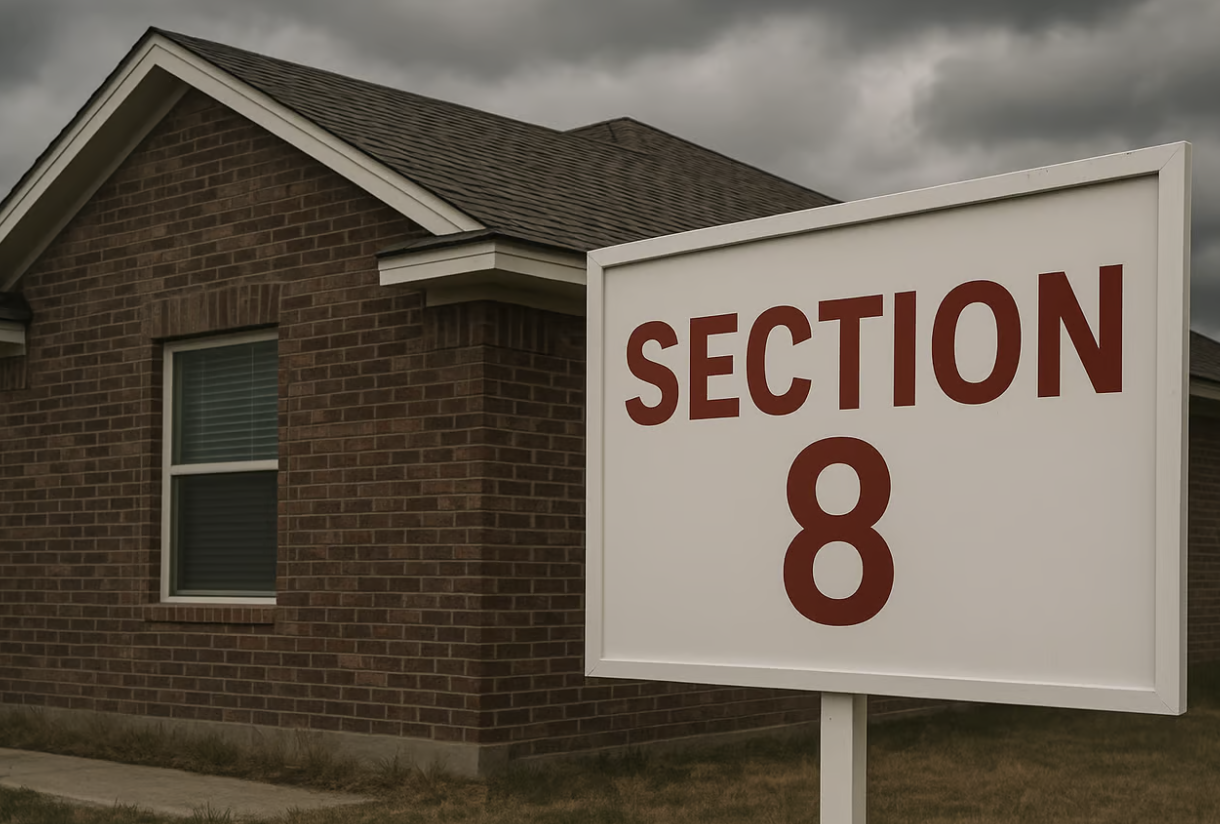1 big thing: Escalating Insurance Costs Deter SW Florida Buyers
Once among the fastest-growing markets in the nation, today’s Southwest Florida — from Sarasota to Naples — is seeing a dramatic slowdown. The primary culprit: spiraling insurance rates, according to Bloomberg.
Why it matters: Retirees and others who flocked to Southwest Florida for balmy weather and a beachy lifestyle are leaving the area, and they’re not being replaced. Inventory is building up—an anomaly in this age of the Great American Housing Shortage—causing a dip in prices and declining property values.
In the Cape Coral-Fort Meyers area, for example, residential listings are up 62% from last year.
In Punta Gorda, they’re up 139%.
What happened: 2022’s Hurricane Ian.
While the state is still trying to recover from the massive devastation, insurers are reacting, raising rates or leaving the area.
Insurers blame the rate increases on lawsuits and fraudulent claims.
Fewer insurers in the state mean reduced competition among those who remain. The result: even more expensive coverage for homeowners.
Insurance premiums in Southwest Florida are now far higher than in the rest of the country: on average, they are $6,000 per year in Florida, compared to the national average of $1700.
Other factors: Sky-high insurance premiums are a big driver of Southwest Florida’s market slowdown, but they’re not the only one:
Developers went big on multifamily residential projects to capitalize on pandemic-era migration trends, according to experts.
The prospect of more—and more intense—hurricanes sweeping through every year as climate change worsens isn’t attractive to people looking to enjoy a relaxing, easy lifestyle in their golden years, either.
Looking back: Southwest Florida used to entice buyers and renters, young families and retirees, with warm winters, a laid-back lifestyle with lots of golf, and affordable housing markets. For many, the region blurred the lines between real life and dream vacations.
Now: It’s difficult for new buyers to come in—and for existing owners to get out. “Affordability has eroded in a big way,” says Brad O’Connor, chief economist of the Florida Realtors.
Going forward: Current real estate realities in Florida could constitute a healthy market reset in the long run, and Florida lawmakers are trying to ease that transition. For now, the path forward for buyers and real estate professionals looks bumpy.
The bottom line: External factors like insurance market dynamics and natural disasters affect the real estate environment—-even years after the fact. But the silver lining is that increased inventory will lower prices for those willing to take the risk.
2. Hedge Funds and the Housing Market's Affordability Crisis

Celebrity real estate agent Mauricio Umansky warns of an unprecedented level of unaffordability ahead in the housing market. In an interview with Fox Business, Umansky lays much of the blame on hedge funds.
Where we are now: Mortgage rates are surging above 7%, mortgage applications are at their lowest since 1995, and there’s a critical shortage in housing supply.
The market won’t price-correct, Umansky says, until there’s an increase in supply—and until those navigating the market feel enough “pain.” Some might argue we’ve reached peak housing pain; others, like Umansky, think there’s even worse ahead.
“[W]e really need to allow markets to be markets, and for affordability to start happening again,” he believes.
Root causes, a refresher: Umansky’s list of the factors that got us into this mess treads familiar ground but with a different emphasis. In addition to the problem of too few new housing starts and high-interest rates for first-time buyers, there’s also:
Current homeowners with favorable mortgage rates are reluctant to sell their homes and take on new, more expensive loans.
Hedge funds acquiring single-family homes has become an epidemic.
The hedge fund factor: Despite his free-market philosophy, Umansky admits the hedge fund problem might be too entrenched for markets to handle on their own:
“The government does have to get involved a little bit and perhaps, you know, figure out some way of limiting the way that the hedge funds are able to do this, because right now in Middle America, they are just eating up so much product that there’s just no supply hitting the market.”
The bottom line: Umansky underlines just how important it is for the government to oversee investor real estate purchasing strategies. Without government action, it could be difficult (or impossible) for the market alone to correct and increase home availability and housing affordability.
An ideal approach to fixing this crisis should include both government interventions and market-driven solutions.
For real estate professionals, advocating for sensible reforms, understanding the market dynamics at play, and being ready to adapt as needed will be mission-critical for staying afloat in this industry.

In the latest episode of the Trust This. podcast, you’ll meet real estate entrepreneurs Anderson Orjuela and Nick Johnston. They explain how the two pillars of trust and transparency helped them build a solid foundation for their business relationship, which started as a mentorship, became a series of joint ventures, and is now a thriving company.
Watch on YouTube or listen on your favorite podcast platform.
3. Catch up fast

How Central Florida sellers can appeal to New York real estate buyers. Mansion Global
Executive confidence in the economy surges. Axios
How businesses can improve the world and not just their bottom lines. TED Talk by Esha Chhabra
Fannie Mae has revised its forecasts for 2024 and 2025 … for the better. Norada Real Estate Investments
An update on the bill targeting real estate investors that’s making its way through Congress. Bigger Pockets
The Biden administration announced on Tuesday that credit card late fees would now be capped at $8 (they’re averaging $32 currently) in further efforts to reign in junk fees. This is in addition to the earlier cap of $3 on bank overdraft penalties. The two together are expected to save $20 billion each year for consumers. CBS
4. Closing Thought

Entrepreneurial success requires courage, curiosity, and balanced confidence.
Courage is the backbone of entrepreneurship.
It enables us to persevere through adversity and challenges, propelling us forward even in the face of setbacks.
In the entrepreneurial realm, disappointments are inevitable.
Ventures may encounter roadblocks, and initial ideas may not materialize as planned.
However, having the courage to persist and push through these obstacles is what sets great entrepreneurs apart.
Yes, but: Most entrepreneurs tend to abandon their pursuits prematurely when faced with adversity.
This lack of persistence often leads to unrealized potential. Courage is a catalyst that fuels determination and resilience.
It empowers entrepreneurs to continue striving for their goals, unruffled by the fear of failure.
Curiousity matters too: Coupled with courage, curiosity plays a pivotal role in the entrepreneurial journey.
Entrepreneurial success thrives on innovation and adaptability.
Embracing curiosity fosters a mindset of continuous growth and learning.
It drives entrepreneurs to question the status quo, to analyze why certain approaches may not yield the desired results, and to seek out new opportunities for improvement.
It’s the tool that allows entrepreneurs to remain humble and receptive to new ideas.
Through curiosity, entrepreneurs explore diverse perspectives, study different industries, and gain insights from various sources.
By being curious, entrepreneurs can uncover solutions and nuances that may have previously eluded them, paving the way for success.
Confidence is an indispensable trait that distinguishes remarkable leaders in the entrepreneurial sphere.
While courage propels entrepreneurs through challenges, confidence serves as the outward manifestation of their inner strength and conviction.
It instills faith and assurance in the entrepreneurial journey, inspiring others to believe in the entrepreneur’s vision and direction.
Yes, but: Beware of overconfidence and temper confidence with rationality.
Unchecked overconfidence can lead to obstinacy and blind adherence to failing strategies.
A prudent leader exhibits confidence while remaining open to introspection and adaptation.
This balanced approach enables them to confront setbacks with resilience and make measured, strategic decisions for the better.
The bottom line: The amalgamation of courage, curiosity, and confidence forms the cornerstone of entrepreneurial triumph.
They enable leaders to confront failures with resilience, to approach problems with inquisitiveness, and to exude unwavering confidence in their pursuit of success.
Courage is needed to push through that inevitable “zone of disappointment.”
Curiosity propels us into uncharted territory, fostering innovation and continuous improvement.
Confidence solidifies our leadership stance, inspiring trust and fortitude within our teams.
It is the harmonious interplay of these traits that enables entrepreneurs to surmount obstacles and emerge as influential leaders.
We hope you found this helpful — any feedback is appreciated and can be shared by hitting reply or using the feedback feature below.
Was this email forwarded to you? Subscribe here.
Have an idea or issue to share? Email us.
Follow MyLandTrustee and Aspire Legal Solutions on LinkedIN, or subscribe to our YouTube channel!
Be on the lookout for our next issue!
Our mailing address: PO Box 547945, Orlando, FL 32854-7945
Our physical address: 1901 West Colonial Drive, First Floor, Orlando, FL 32804



